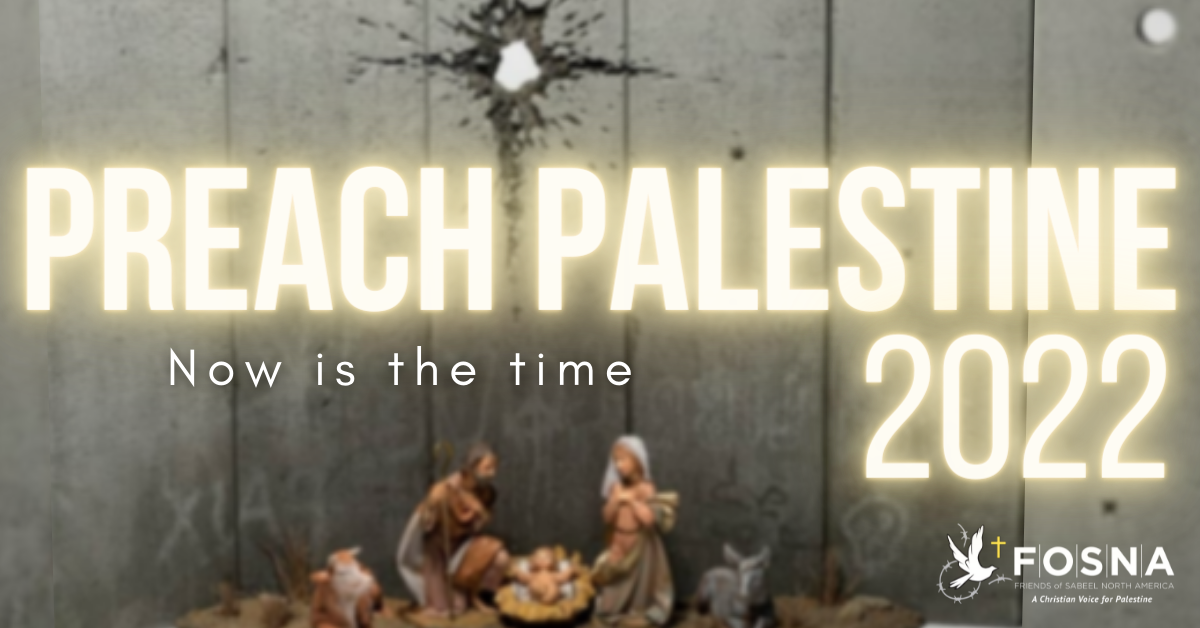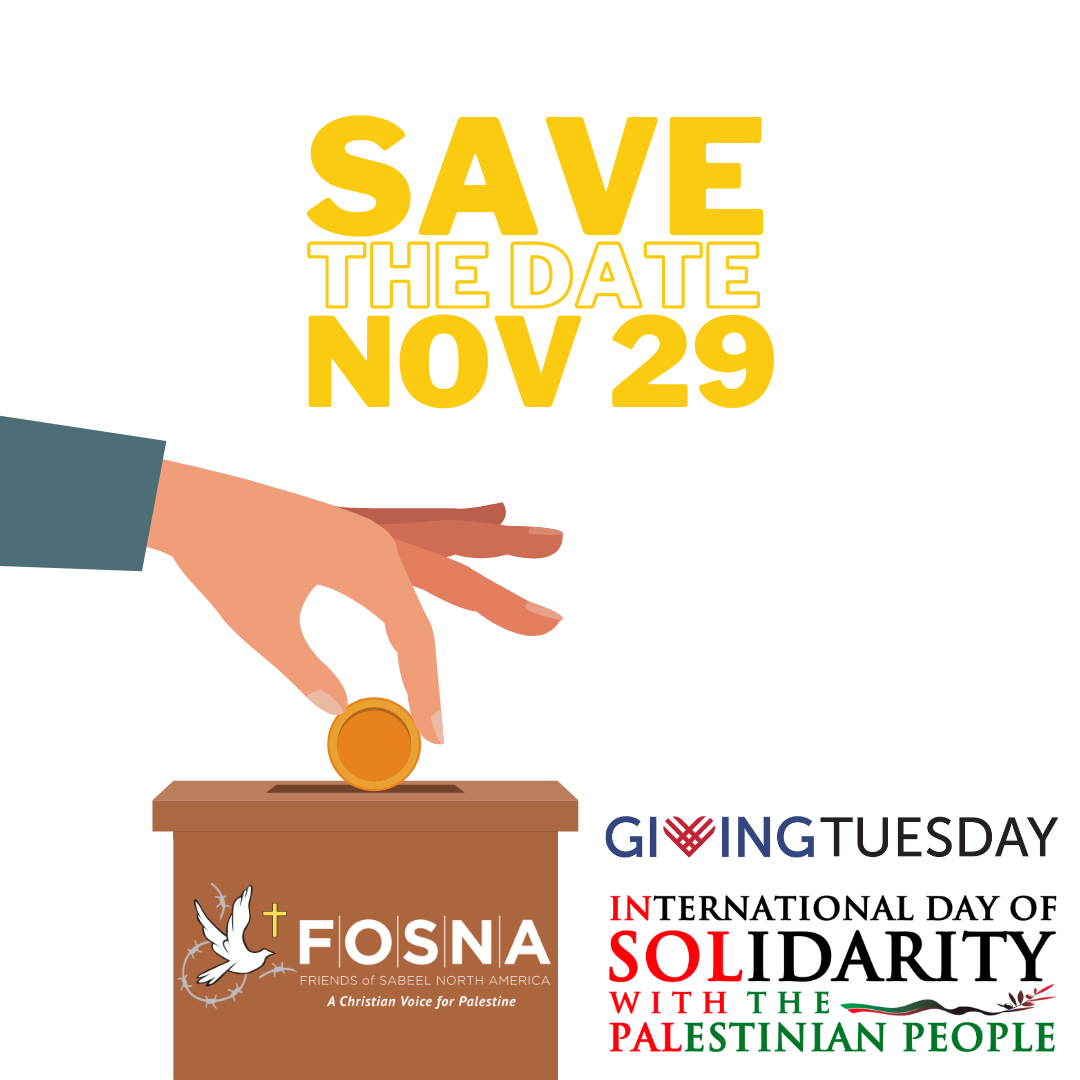The Olive Harvest
by Jonathan Kuttab
The olive harvesting season in Palestine is drawing to a close.
As in every year, but perhaps to a much greater degree this year, the olive harvesting season is fraught with excitement, hard work, and danger. Palestinian families often leave their homes and jobs, for it is all-hands-on-deck when harvesting the olives from their lands, which are often closed off to them year round. They often need special permission just to access their lands and harvest their olive trees. Labor is so much in demand that many landless farmers often offer their labor in return for one third of the crop they harvest. Schools are sometimes closed, and universities encourage students to volunteer by joining olive pickers as part of their required volunteer service hours each year. Olives are harvested hopefully before the first rains, which coincide with the Festival of the Cross for Palestinian Orthodox Christians.
As in every year, Israeli settlers attack the villagers in an attempt to prevent the harvest, often stealing the product and cutting down trees. Armed settlers, particularly from the “Hilltop Youth” movement attack farmers with rocks, chains, dogs, and even firearms. The Israeli army, which supposedly deploys in order to prevent such attacks and limit friction between settlers and farmers, often merely stands by—if they aren’t actively trying to prevent access to the land or even helping settlers attack the farmers. Recently, settler attacks have increased markedly, as well as their feeling of impunity as settlers have taken to attacking volunteers and vandalizing their cars as well.
In addition to the deep cultural significance and attachment to olive trees (a sign of blessing and abundance since biblical times), olive trees also attest to the continued agricultural use of the land by the Palestinians. Olive trees live for a long time. Some are reputed to go back to the times of Christ and are referred to by Palestinians as “Rumi trees” (referring to the times of the Romans). The trees also take several years to produce their olives, and therefore each generation benefits from the labor of previous generations as it plants trees for its children and grandchildren.
Utilizing dubious legal theories, Israel often confiscates Palestinian land by claiming that such land is not private because it is not being used continuously. Therefore, it is declared “state land” and then turned over to Jewish settlers. Farmers are forced to prove that there has been no break in the land’s use during any 10-year period. Meanwhile, Israeli authorities try to prove there has been a break in usage by producing aerial photographs taken during drought years. The presence of olive trees, however, becomes a powerful tool in any legal battle over ownership of the land. Olive trees, which are hardy and require little ongoing maintenance or artificial irrigation, stand as intergenerational proof of ongoing Palestinian use and cultivation.
For that very reason, Israeli authorities prohibit any additional planting of trees (particularly in Area C), even on Palestinian lands that are clearly private. Also for that reason, settlers often cut down and burn olive trees. Palestinians respond by planting trees on their land whenever they can, sometimes as a form of nonviolent resistance and as a method of hanging on to their lands. Before his deportation, nonviolent activist Mubarak Awad often led Palestinian villagers in intentional tree planting activities, particularly on land near settlements or those threatened with confiscation and settlement expansion. Foreign and Israeli volunteers often joined in these tree-plantings. These activities were often brutally opposed by Israeli authorities whose goals, if not always admitted, were precisely to take the land and prevent Arab use of it.
One silver lining in this story is the role of Israeli Jewish volunteers and organizations like Rabbis for Human Rights, who organize to help with the olive harvest and assist in the protection of Palestinian farmers during this season. Recently, these brave Jews have been specifically targeted by the settlers, who attack and injure them as well as vandalize their cars. A recent attack on such volunteers has been filmed and fully documented. Though soldiers were present, no settlers were questioned or arrested even as many volunteers, including a 70 year old lady, ended up in the hospital. This is the most effective form of Jewish-Arab coexistence. It comes from acts of solidarity, respect, and co-resistance to the evil of the occupation. Even though their numbers are few, these brave Israeli peace activists truly provide hope for the future. They stand with Palestinians in their daily fight for survival in concrete terms and often pay a very real price for it. Talk of peace that does not include such active forms of co-resistance becomes nothing more than polite normalization of existing injustice.
The olive tree once again serves as a symbol for peace, prosperity, and genuine coexistence. Let us continue to pray and work for a just peace.
Donate: Support grassroots efforts for justice and peace in the Holy Land
Take Action!
Preach Palestine 2022
Now Is the Time!
Friends of Sabeel North America is calling on Christian leaders across the U.S. to commit their congregations to Preach Palestine this Advent season.
Be it an entire service or a single prayer, we are asking you to once again Preach Palestine and lift up the Palestinian people such that they would come to experience the joy, justice, and peace of Christ's liberating reign, as a very real light in the present darkness.
Click the link below to learn more and find resources!
FOSNA kicks off it’s annual Christmas Appeal on Giving Tuesday (November 29), a day which corresponds this year with the International Day Solidarity with the Palestinian People. As a friend of Sabeel, we invite you to stand alongside us in solidarity with the people of Palestine as a peer fundraiser. To learn more about how you, as an individual or group, can join together with us in raising support for justice, please click on the link below:
World Cup 2022
#SoccerNotCells
As the FIFA World Cup begins this weekend, we can't help but think of all the Palestinian children imprisoned in Israeli jails who will be missing out on the simple pleasure of watching their favorite sport at home with their families. Instead, kids like 16 year old Shadi Khoury, a team captain and avid soccer fan, are being beaten and imprisoned without charge. From Shadi's grandmother:
"I was hoping Shadi would be with us for the World Cup which starts on the 20th. As a football player (soccer), team captain, and a fan, this was a great event for him which we were planning to watch together. Unfortunately, we heard from the lawyer yesterday that the court session will take place on the 23rd. So please continue to hold him and all the children prisoners in your prayers, especially when you are watching the World Cup."
—Samia Khoury, Shadi's grandmother
We are calling on you to Tweet and post #SoccerNotCells this week and throughout the World Cup in support of every imprisoned Palestinian child.
Use the link below to send out a pre-written tweet. (You must be logged-in first):
Write to the Asian Football Federation
Take one-minute to write to the AFC President Shaikh Salman bin Ebrahim Al Khalifa and AFC General Secretary Datuk Seri Windsor John, and Asian Football Associations that you call on them to stand with Palestine.
Get Involved!
We invite you to join us in the following events and activities:
December 11: Online
December Voices From the Holy Land Online Film Salon
Save the date for VFHL's December film salon! We will be focusing on the topic of pilgrimage to the Holy Land with three free short films and a Q&A panel after.
Sabeel Ecumenical Liberation Theology Center, Jerusalem:
Weekly
Sabeel Prayer Service. Join Sabeel every Thursday (6pm Jerusalem) for online Bible Study, discussion, and prayer. Examine scripture in light of the ongoing realities confronting the Palestinian Church and the pursuit of Palestinian liberation.
Wave of Prayer. Subscribe to receive Sabeel's Wave of Prayer, enabling friends of Sabeel around the world to pray over issues of critical concern to the Holy Land on a weekly basis.
Kumi Now! (Week 46) Children’s Rights. This week, as people around the world celebrate Universal Children’s Day on November 20, we are reminded that Palestinian children are denied the human rights and opportunities available to children elsewhere in the world and only a short distance away in the settlements and Israel. Here’s what you need to know and what you can do so that together we can rise up.





